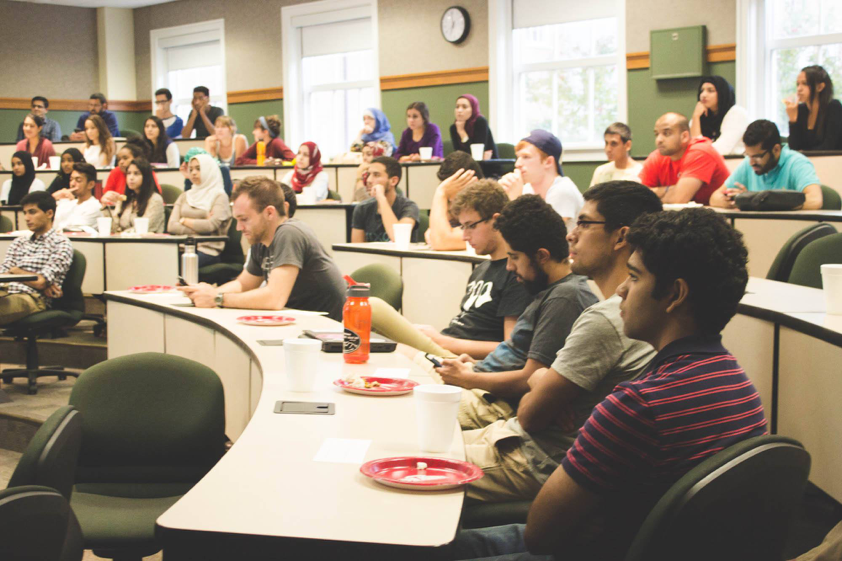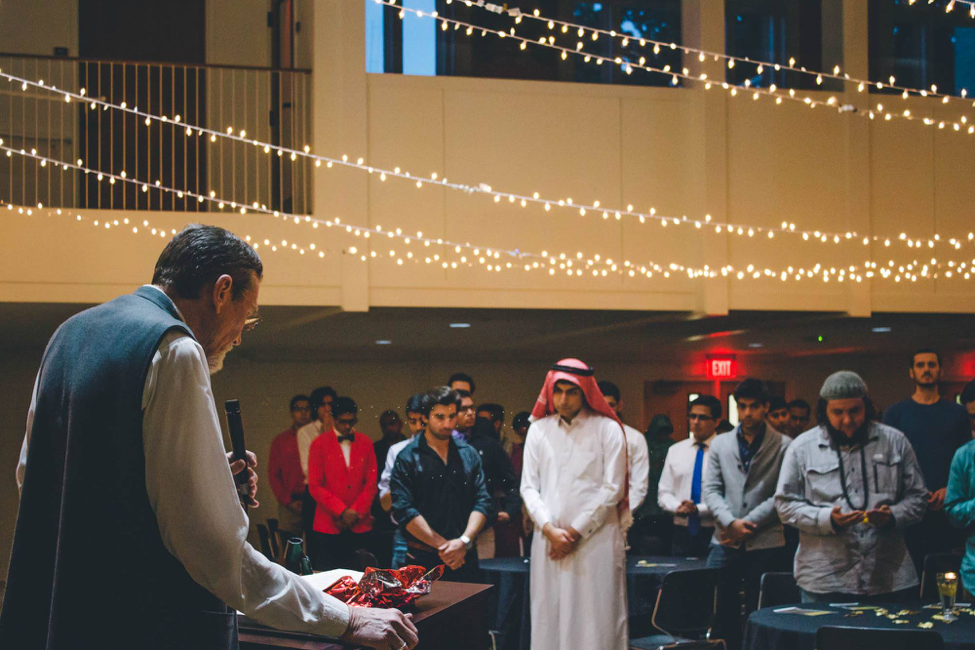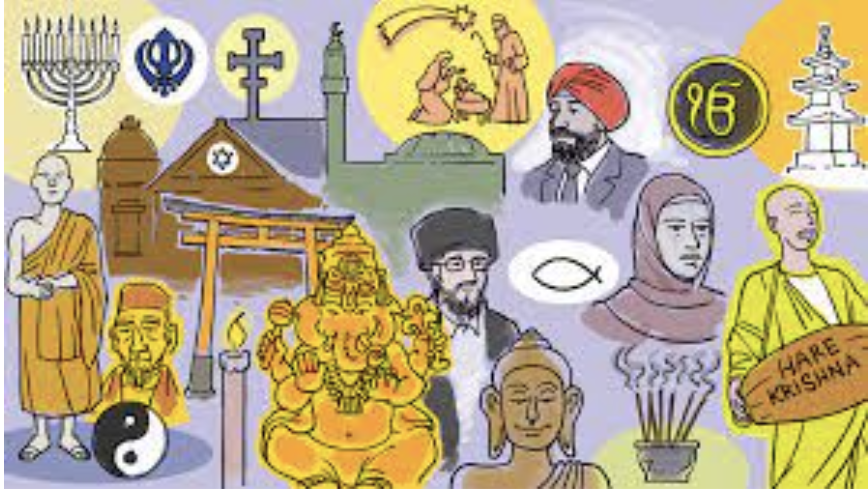By Tré Brown
As America began to globalize and solidify itself as a world power, we opened ourselves to threats internationally and on our own shores. 14 years since the beginning of the War on Terror, some still question whether or not we are actually succeeding in creating a safer world with the rise of ISIS and continuous domestic acts of terror (i.e. Boston Marathon bombing). These terrorists at home and abroad have made the most common of places – malls, movie theaters, office spaces, large events, and even schools – dangerous for our citizens.
But is our fear of future threats encroaching on other citizens’ rights? Just last month police arrested 14-year old Ahmed Mohammed for bringing an alleged “bomb” to school. During their investigation, they realized that the ninth grader from Irving, TX, was truthfully describing the object as a homemade alarm clock. To add fuel to the fire, Ahmed was suspended for 3 day following this discovery; the Irving Independent School District and MacArthur High School cited in a letter the violation in the IISD Student Code of Conduct of “bringing items to school that are prohibited” and warned parents and students to report “suspicious items and or behavior.”
That day, Ahmed wasn’t a student, a tech-lover or an aspiring engineer; he was a “terrorist” simply because he was Muslim. Islamophobia – the fear of, hatred towards, or prejudice against the religion of Islam or the Muslim community – is increasingly becoming a problem in the United States, and many incidents can even be seen in the Dallas area. For example, Muslim Americans gathered in January to condemn violent extremism, but were met with opposition from the Garland community, an area northeast of Dallas and just a few minutes from Irving. One gatherer yelled, “We’re here to stand up for the American way of life from a faction of people who are trying to destroy us.” Ironically, the group Stand With the Prophet Against Terror and Hate isn’t trying to destroy us and bills itself as a dedicated force to teach Muslims to appreciate the true meaning of the Islamic faith.
Even the media has incorrectly approached the topic of Islam. For instance, John McCain (R-AZ) was being interviewed by Fox News anchor Brian Kilmeade who, after watching a video taken in Syria, asked the senator whether he could support someone who yelled “Allah Akbar.” McCain didn’t see anything wrong and even compared it to an English-speaker saying “Thank God.” Kilmeade is insinuating that anyone who proclaims thanks to Allah must be someone we can’t trust, which is completely misguided. The fact that a very common phrase can be misconstrued to make someone out as a terrorist is becoming a trend in America, and it’s not only limited to conservative thinkers.
CNN’s Don Lemon asked – for what seems like no reason – if Muslim International Human Rights lawyer and journalist Arsalan Iftikhar supports ISIS. Iftikhar emphasized the people that commit these types of crimes are irreligious and cannot represent the religion of Islam as a whole – a religion that represents many recent Noble Prize Winners and the creators of algebra and modern medicine.
One sector of UGA’s diverse population is our Muslim students who are represented on campus by UGA’s Muslim Student Association (MSA). MSA is a faith-based organization that strives to provide a stronger community within the UGA campus. It partners with other organizations on campus, such as Wesley’s Peacemakers, to start the conversation on the teachings of the Quran and its similarities to Christianity. I sat down with MSA’s spokesperson and event coordinator Sahar Khan to discuss the growing Islamophobia in the US.

Sahar is your average American student. The Georgia native from Norcross remembers a time where it wasn’t strange to be different. But after her family relocated to Forsyth County, she quickly realized she was a minority in a largely white community. What made it even worse was that her move followed the September 11th attack on the World Trade Center. Even with this opposition, she found a way to connect with her classmates even though she was a Pakistani Muslim girl.
Coming to UGA wasn’t a hard decision for Sahar; she knew that she wanted to be a doctor of osteopathic medicine since she was 14 years old. Sahar always knew her goal in life was to help people, so her switch to Science Education this past year didn’t come as a shock to anyone. The third year’s love for teaching fell perfectly into place and launched her dream of inspiring kids across the globe.
As a science education major, the topic of Ahmed Mohammed was quickly discussed in Sahar’s classes. She recalls other students saying they would have done exactly what the teacher did in confiscating the clock, saying that it looked like a bomb. Sahar can understand their reaction as a fellow American and as an educator. Safety is very important in today’s day and age; she even notes our instinctive fear of homemade “bomb-like” items. But even with that, Sahar took a different path. She describes the desired student-teacher relationship where we “make sure that the mental status of each kid is okay.” She goes on to say “And I’m sure they’ve interacted with him on some level to understand that he’s not someone who would do something like that.”

We went on to talk about the idea if Ahmed’s caution to show the clock might have prevented this incident from occurring, which brought up the strained relationship that the Muslim community has with the rest of the population. When people think of the word Islam in America, Sahar believe the first thing that comes to people’s mind is terrorist, women in veils, and bearded brown men. The truth about Islam is the biggest push to change the perception of their culture according to Sahar. “With any minority group, or any minority faith, at first there is always this pushback,” she explains, “But over time in America, people come to accept it.”
One way of changing the perception of Islamic culture is by teaching the true practices of the religion. This goes for both those from other religions and those who practice it. Sahar took the initiative to teach her friends the similarities between Christianity and Islam, but also says it’s up to Muslims themselves to understand what they are practicing. “Each individual person needs to go out and learn about whatever it is that they are.” She goes on to say, “A lot of people, they don’t understand why we pray five times a day, why we fast, why any of this is important. They just do it because they’ve been told to do it.”
Sahar applies this to the incident in Irving. She recalls an assignment in her education classes dealing with breaking stereotypes and recommends to “do it! It not just an assignment.” She also simply suggest teachers “use common sense. Look at the kid. If he’s wearing a NASA shirt then he’s not trying to hurt anyone.” Lastly she believes they should “invest time in students and get to know them so that way you can love and respect each other.”
This happened in Texas but make no mistake, with extent of anti-Muslim stereotyping in the US, it could happen anywhere#IStandWithAhmed
— Yousef Munayyer (@YousefMunayyer) September 16, 2015
Assumptions and fear don't keep us safe—they hold us back. Ahmed, stay curious and keep building. https://t.co/ywrlHUw3g1
— Hillary Clinton (@HillaryClinton) September 16, 2015
Cool clock, Ahmed. Want to bring it to the White House? We should inspire more kids like you to like science. It's what makes America great.
— President Obama (@POTUS44) September 16, 2015
“At the end of the day when Ahmed comes in with a clock he builds, you help him get it into the science fair instead of getting him in jail,” said Sahar. Ahmed may have experienced something on September 14th that should have never happened, but the support he received on social media and around the globe helped break the grasp Islamophobia has on the country. “The way that you feel at home and when you feel safe is when you feel loved,” Sahar explains, and it is what she thinks will finally destroy this fear. The conversation has started, but it is up to us to steer it in the right direction.
For more information about the Islamic faith or the Muslim Student Association and their events check out their website and Facebook.
Photo Credit: Anil Dash


